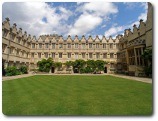Metaphysical poets, selected poems Contents
- Social / political context
- Religious / philosophical context
- Literary context: ideas and innovations
- Aire and Angels
- A Hymn to God the Father
- A Hymn to God, my God, in my Sicknesse
- A Nocturnall upon St. Lucies day
- At the Round Earth's Imagin'd Corners
- A Valediction: Forbidding Mourning
- Synopsis of Valediction: Forbidding Mourning
- Commentary on Valediction: Forbidding Mourning
- Language and tone in Valediction: Forbidding Mourning
- Structure and versification in Valediction: Forbidding Mourning
- Imagery and symbolism in Valediction: Forbidding Mourning
- Themes in Valediction: Forbidding Mourning
- A Valediction: of Weeping
- Batter my heart
- Death be not Proud
- Elegie XIX: Going to Bed
- Elegie XVI: On his Mistris
- Good Friday, 1613. Riding Westward
- Lovers' Infiniteness
- Oh my blacke Soule!
- Satyre III: 'On Religion'
- Show me Deare Christ
- Since She Whom I Lov'd
- Song: Goe, and catche a falling starre
- The Anniversarie
- The Dreame
- The Extasie
- The Flea
- The Good-morrow
- The Sunne Rising
- This is my playes last scene
- Twicknam Garden
- What if this present
- Aaron
- Affliction I
- Death
- Discipline
- Easter Wings
- Jordan I
- Jordan II
- Life
- Love II
- Man
- Prayer I
- Redemption
- The Church-floore
- The Collar
- Vertue
- Hymn in Adoration of the Blessed Sacrament
- Hymn to St Teresa
- St Mary Magdalene, or the Weeper
- To the Countesse of Denbigh
- Ascension - Hymn
- Man
- Regeneration
- The Night
- The Retreate
- The Water-fall
- A Dialogue between Soul and Body
- On a Drop of Dew
- The Coronet
- The Definition of Love
- The Garden
- The Mower Against Gardens
- The Mower to the Glo-Worms
- The Mower's Song
- The Nymph Complaining for the Death of her Faun
- The Picture of Little T.C. in a Prospect of Flowers
- To his Coy Mistress
- Upon Appleton House, to my Lord Fairfax
- An Elegie upon the Death of the Deane of Paul's Dr John Donne
- To a Lady that Desired I would Love her
Henry Vaughan's Early Life
Henry Vaughan, like Richard Crashaw, was a second generation Metaphysical poet. At one point he quite openly acknowledges his debt to George Herbert, whose The Temple, was published when Vaughan was twelve years old. He was born in mid-Wales and lived most of his life there, but wrote entirely in English. Of all the Metaphysical poets, he is the one we would most call a nature poet, and some of his verse anticipates the nature poetry of William Wordsworth, the Romantic poet born some 150 years later.
Henry Vaughan’s family
Henry Vaughan was born in 1621 to Thomas and Denise Vaughan, at Newton-upon-Usk, Breconshire.
- He had a twin brother, Thomas, who became a philosopher and alchemist
- A younger brother, William, died when he was 20.
Henry Vaughan's Education
 The Vaughan twins seem to have attended Jesus College, Oxford together in 1638, but there is no record of Henry having gained a degree. He probably went to London to study law, as the family considered that life as a country lawyer would be his best career. His brother trained to be a clergyman.
The Vaughan twins seem to have attended Jesus College, Oxford together in 1638, but there is no record of Henry having gained a degree. He probably went to London to study law, as the family considered that life as a country lawyer would be his best career. His brother trained to be a clergyman.
Henry Vaughan and The English Civil War
In 1642, Vaughan returned to Breconshire and became secretary to Judge Lloyd. By then the Civil War had broken out, with Vaughan supporting the Royalists. He probably saw some action, either in South Wales or at the Battle of Rowton Moor, outside Chester. After the war, he became a doctor and practised medicine for the rest of his long life.
Henry Vaughan's Marriage
In 1646, Vaughan married Catherine Wise, and had a son and three daughters. After her death, he married her younger sister in 1655 and had another son and another three daughters by her.